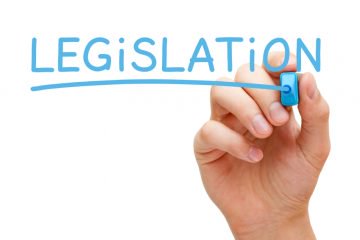The Government has released regulations and guidance on the new section 21 legislation, with around three weeks to go before enforcement.
Property lawyer Tessa Shepperson describes the matter as a “nightmare”1, criticising the short timeframe before implementation.
Another expert complained of there being no meaningful guidance.
The new Government publications highlight how new and renewed tenancies must be dealt with from 1st October onwards.
One expert believes that the new procedure could make it harder for landlords to gain possession of their properties, with enforcement “driven by tenants relying on the argument that the new processes have not been complied with.”1
Along with tenancy deposit details, landlords or their agents must prove that they have given Energy Performance Certificates (EPCs), gas safety certificates and the Government handbook, How to Rent, to their tenants.
The booklet, applicable only in England, will be made available to download from the Gov.uk website and it must be printed out for each tenancy.
If landlords or agents cannot prove that they have supplied this paperwork to tenants, they will not be able to use the no fault section 21 procedure.
Lawyers advise landlords and agents to have the tenant sign as proof that they have received the information.

Government Releases Guidance on New Section 21 Law
Agent Ian Sanford says that another difficulty is that neither the regulations nor the guidance state when the booklet should be provided to tenants.
Sanford, the Managing Director of Pennington Properties in Huntingdon, says: “The legislation doesn’t specify when the booklet should be given, but it should be, presumably, just before the start of the tenancy.
“However, the booklet is laid out in such a way that it is meant to be given to prospective tenants before they even look at a property, so it seems a bit late to be giving it to them once they have committed to a tenancy.
“We will also have to get tenants to sign for the booklet as proof that they have been given it, otherwise they could deny it at a court hearing and invalidate the section 21 notice.
“In the guidance notes, it says that the notice will not be valid until the prescribed information, i.e. the How to Rent booklet, has been provided to the tenant, so presumably, it could be sent to the tenant just before the notice is issued.”
He continues: “We are going to get all our tenants to sign for the EPC, gas safety certificate (where appropriate) and How to Rent booklet at the start of each tenancy after October 1st, as, if we don’t have proof that they have been given these documents, they could claim they never received them, thereby invalidating the section 21 notice and preventing a landlord obtaining possession.
“After the fiasco with the smoke and carbon monoxide alarms legislation, this is another ill thought-out piece of legislation.”1
Additionally, there is some confusion regarding the new section 21 form of notice.
Although it must be applied on tenancies in England that start on or after 1st October, it can be used for tenancies that started before that date.
However, many of the new pre-conditions will not apply to existing tenancies.
Also, the new form of notice cannot be used if the property requires a license, but is unlicensed.
Fixflo’s Rajeev Nayyar, says: “While ostensibly this refers to HMO [House in Multiple Occupation] licensing, the non-specific wording may hint at a wider licensing regime to be introduced in the future.
“These are a complex set of changes being introduced without any meaningful guidance for the industry.
“Unlike other changes that have recently affected lettings businesses, enforcement of the new rules will not come from a Government body and will instead be driven by tenants not wishing to leave their homes and relying on the argument that the new processes have not been complied with.”1
The legislation can be read here: http://www.legislation.gov.uk/uksi/2015/1646/pdfs/uksi_20151646_en.pdf
And the guidance is here: http://www.legislation.gov.uk/uksi/2015/1646/pdfs/uksiem_20151646_en.pdf
1 http://www.propertyindustryeye.com/nightmare-for-agents-and-landlords-as-government-finally-spells-out-new-section-21/



